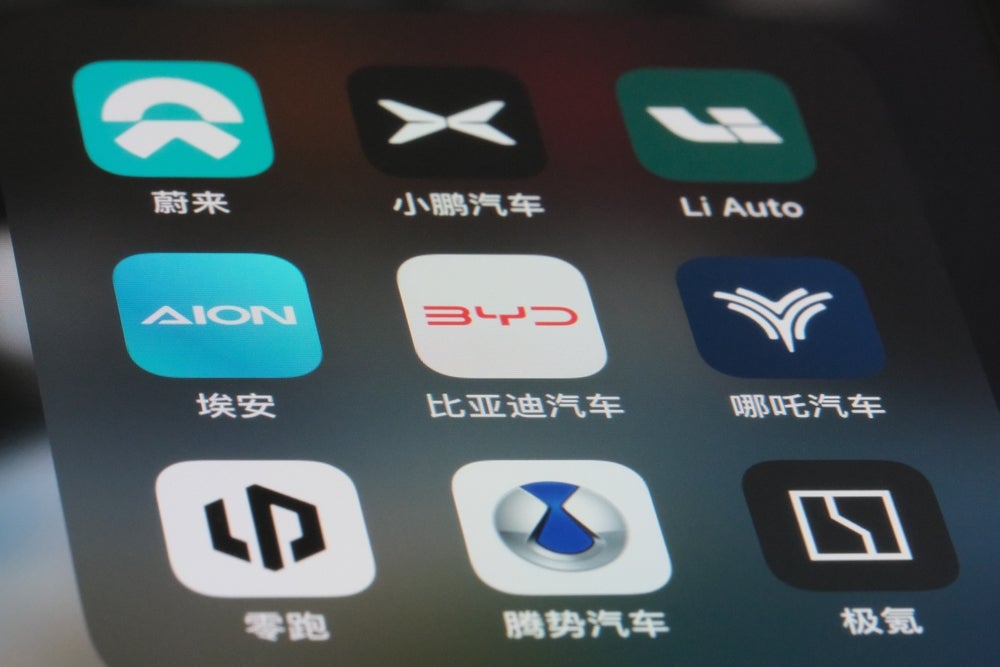
US and European car manufacturers must drastically overhaul their product development timelines to remain competitive against rapidly advancing Chinese automakers, according to technology firm CoLab, a technology company based in Newfoundland, Canada.
The company, which develops collaborative design review and AI solutions for hardware engineering teams, works with major manufacturers including Ford and Schaeffler.
Data from the European Automobile Manufacturers’ Association (ACEA) shows that production output from European carmakers has remained stagnant since 2010, with a slight decline of 1.5% from 18.3 million to 18 million in 2023. UK production has dropped by up to 12% over the same period.
In contrast, the International Organization of Motor Vehicle Manufacturers (OICA) figures indicate that Chinese automakers have more than doubled their output, increasing production by 105% from 13.9 million to 28.5 million vehicles between 2010 and 2023.
Chinese manufacturers benefit from fewer regulatory constraints, in-house capabilities, and government-backed supply chain support, enabling them to accelerate product design and production.
European and US carmakers, such as Volkswagen and Renault, traditionally take between 200 and 216 weeks to develop new models, while Chinese competitors like NIO operate on timelines of approximately 120 weeks, effectively cutting design and production times in half.
Access the most comprehensive Company Profiles
on the market, powered by GlobalData. Save hours of research. Gain competitive edge.

Company Profile – free
sample
Thank you!
Your download email will arrive shortly
We are confident about the
unique
quality of our Company Profiles. However, we want you to make the most
beneficial
decision for your business, so we offer a free sample that you can download by
submitting the below form
By GlobalData
The pressure on US automakers is intensifying, particularly as new tariffs on imports from Canada, Mexico, and China come into effect. Industry leaders stress the need to build supply chain resilience to maintain competitiveness.
“China controls critical resources for EV components,” said Stephen Gibson, Head of Product Development at Autoneum. “To stay ahead, or even catch up, we need to accelerate innovation, optimise costs, diversify supply chains, and leverage our heritage and quality for differentiation. The competition is heating up, and while disruptive, it will ultimately drive progress.”
Companies can speed up innovation and cost optimisation at the design stage without compromising quality by refining the request for quote (RFQ) process and incorporating co-design practices early on.
“Engineering-led supplier co-design is a straightforward way to build supply chain resilience,” said Adam Keating, Co-Founder and CEO of CoLab. “Currently, OEMs send out RFQs, wait for responses, and only share product data with preferred partners when designs are finalised. Instead, OEMs can integrate suppliers into the design process while the CAD models are still evolving. Using modern digital tools like CoLab Portals, engineers and suppliers can collaborate on technical reviews during RFQs, eliminating administrative bottlenecks. This allows for parallel development and real-time adaptation to changes.”
Keating explained that this collaborative approach benefits both manufacturers and suppliers: “OEMs gain a faster, more efficient design process. Suppliers gain a competitive edge in future RFQs. And by collaborating rather than reacting, both parties see results: 30-50% faster lead times, design cycles twice as fast, and up to 50% reductions in bill of materials (BOM) costs.”
Although European car sales and production have slowed in 2024 due to reduced subsidies and manufacturers adjusting strategies ahead of stricter emissions regulations, the industry is set to launch 160 new electric vehicle (EV) models in 2025. However, these models will need to be price-competitive and meet consumer expectations to stand up to Chinese alternatives.
“The EV race has been ongoing for nearly five years, meaning companies launching models now are already behind,” said Keating. “Success will depend on agility, streamlined platforms, and the strength of ecosystems carmakers build.”
Keating warned that the pace of innovation could render some EV models obsolete before they reach the market. “Delays and missed milestones can cost millions, and traditional carmakers must double their product design speeds and eliminate four-to-five-year development cycles or risk collapse.”
Advancements in AI and collaborative software are critical to achieving the required acceleration. Design engagement systems (DES), integrated with existing computer-aided design (CAD) platforms, can streamline, automate, and enhance collaboration in the design process. Key stakeholders can work within a closed digital environment, accessing specific product data in real-time alongside in-house teams.
Proven to cut lead times by 30%, DES technology enables manufacturers to bring vehicles to market months earlier.
“It’s a massive increase in speed,” said Andrew Walden, Senior Project Engineer at Ford Pro Special Vehicles. “We’ve deployed CoLab across our 200-strong converter network in Europe to accelerate design iterations and drive more innovation. Now, converters can see vehicle designs sooner, allowing us to bring Ford products to market faster and stay competitive.”

